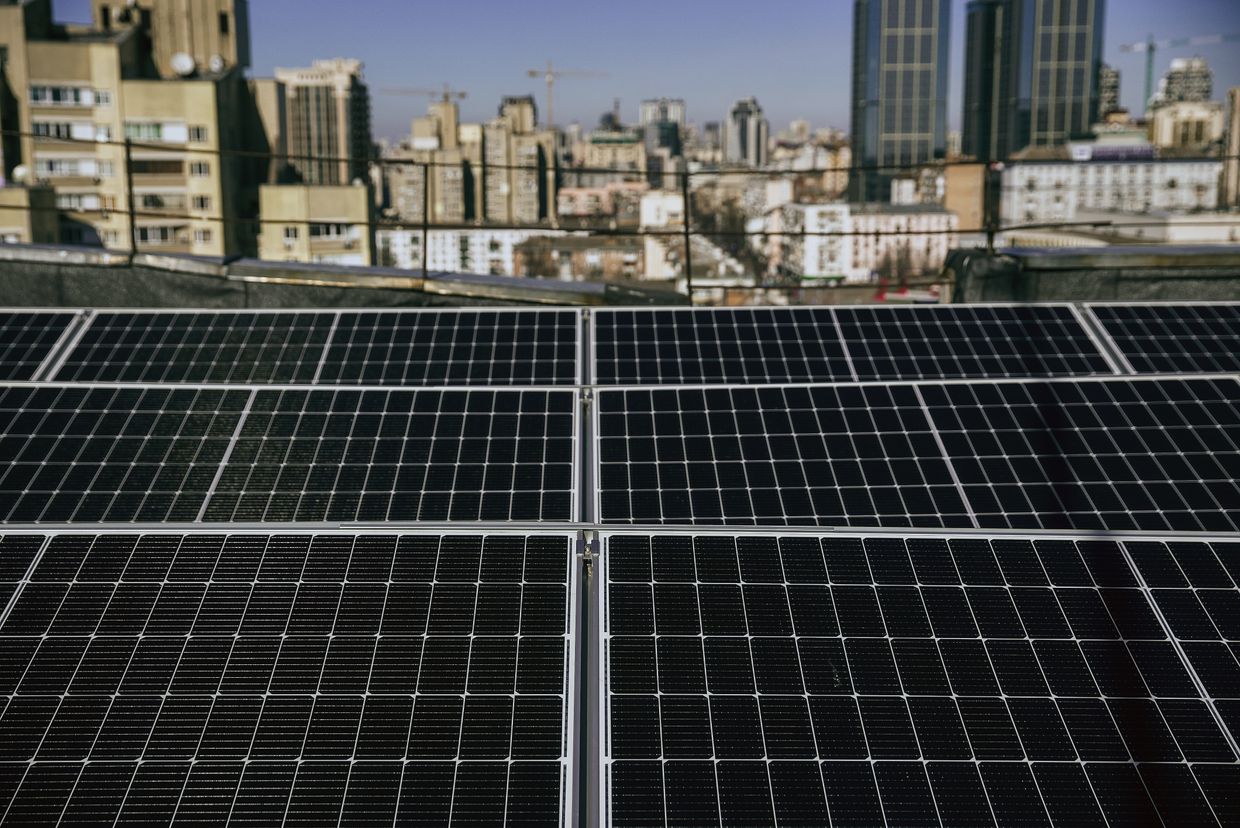EU, Germany boost Ukraine's energy efficiency fund with 18 million euros

The EU and Germany have topped up Ukraine’s Energy Efficiency Fund (EEF) with an additional 18 million euros ($20.7 million) to expand their support for Ukraine’s energy independence and green recovery, the EU Delegation to Ukraine said on June 11.
The move was announced at the 10th meeting of the delegation's Coordination Council in Kyiv.
The EU provided 13 million euros ($15 million) of the new funding, while Germany's International Climate Initiative (IKI) provided 5 million euros ($5.7 million).
The International Finance Corporation (IFC), the investment arm of the World Bank, will continue to manage the EEF’s trust fund.
The fund, established in 2019, is split into two programs: VidnovyDIM, which helps repair war-damaged homes, and EnergoDIM, which co-finances grants to cut energy consumption and costs by installing new insulation, windows, and heating systems.
“Today, when Russia is shelling Ukrainian homes almost every night, the VidnovyDIM Fund program helps families cover the costs of repairing walls, roofs, and windows so that they can return home safely and with dignity,” EU Ambassador to Ukraine Katarina Maternova said.
“In parallel, through the EnergoDIM program, we continue to support the thermal modernization of old buildings, which allows us to reduce energy consumption and monthly costs.”
Since 2021, the fund has grown from 90 projects to 1,500 projects, in cooperation with homeowners’ associations, and helped Ukraine save 300 kilowatts per hour in energy consumption– as much as the city of Chernivtsi consumes. The EEF has helped over 217,000 families modernize and repair their homes, of which half were covered by the VidnovyDIM program.
The new financing will improve the efficiency of grants, raise the grant size to meet demand, and help more people under Ukraine’s environmentally sustainable “Build Back Better” principle. The grant limit should increase to more than 200,000 euros, said Ukraine’s Development of Communities and Territories First Deputy Minister Alena Shkrum.
The EFF will now be able to resume requests, which were paused due to the high number of applications. Around 10% of Ukraine’s housing stock has been damaged or destroyed, while much of the country’s heating system is from the Soviet era and inefficient, with apartments unable to control the heating in the winter.
Ukraine’s energy grid has been targeted relentlessly by Russian attacks, causing widespread energy instability across the country. At the same time, bills have increased for electricity and heating, frustrating citizens who have already taken a financial hit due to the war.
The fund has modernized homes and schools to become more energy efficient, which not only cuts costs but also retains warmth during blackouts, said the Shkrum. More Ukrainians are beginning to understand the importance of energy efficiency due to Russian attacks, “which is why the fund should continue functioning, reforming, and developing further,” she added.












